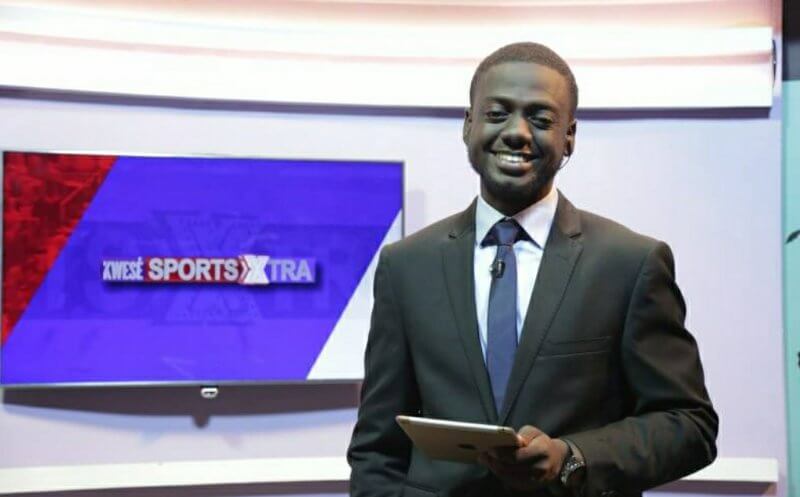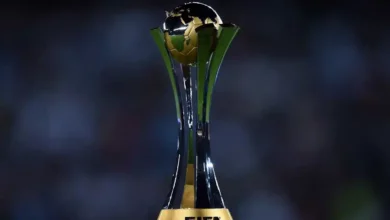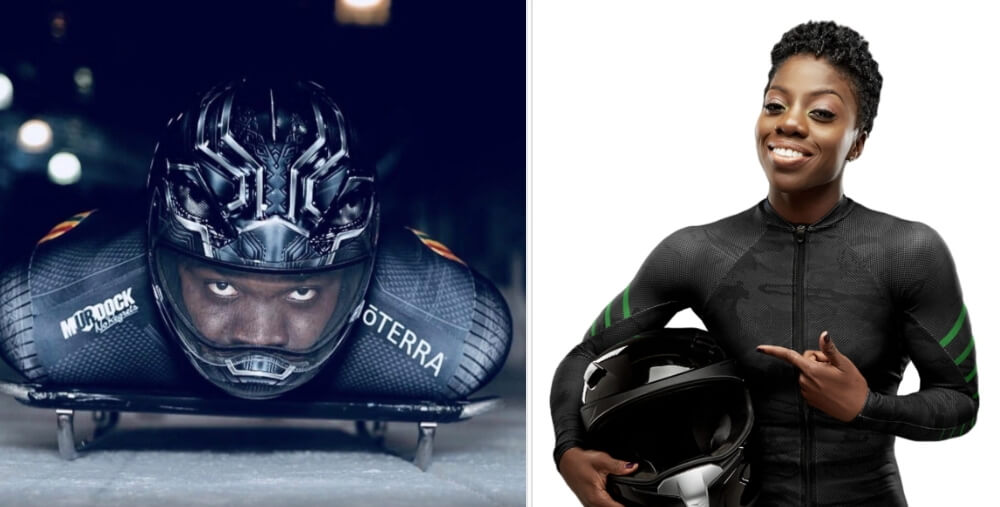Fiifi Anaman, from blogger to TV presenter in six years

From starting up a blog as a high school graduate to facing the TV cameras as a core professional, Fiifi Anaman has had a meteoric rise in sports journalism in Ghana is one to be greatly admired. The young and passionate six-year journey has seen him feature on highly acclaimed media outlets like Goal, SuperSport, ESPN, Telegraph and the BBC. And in January, 2018 he became the new face of Kwese Sport Xtra as presenter and producer. “I’m a young man who is passionate about art and storytelling“, says the 24-year-old.

What do you like the most about sports journalism?
I love how sports journalism captures and documents a phenomenon that is as universal and powerful as sport. To be able to chronicle something that people hold so dear to their hearts is pretty special. It makes you feel like you are contributing to people’s lives, that you are leaving an indelible mark. In the summer of 2012, I thought about merging writing and my passion for football. So I began a blog and started sharing content on social media. The feedback was encouraging and soon pushed me to apply to write for established blogs and websites. Since then, it’s been a rollercoaster ride of experiences that, admittedly, have happened at an unusual pace. I also got to ghost-write the autobiography of Ghanaian football legend C.K Gyamfi (yet to be published). Recently I was on a show and I was asked how long I’d been a journalist, and as soon as the words “six years” left my mouth, my heart skipped a beat. I hadn’t realized just how much had happened and how quickly.
What are the challenges you have encountered in sports journalism?
I would say access. I usually listen to a lot of veteran journalists talk about how teams and players were more reachable in the past and how that gave the profession intimacy and even integrity. Now access is restricted and controlled: everyone is getting the same generic press conference quotes and press releases. More often than not, as journalists, we find ourselves writing on subjects that we are far from and thus relatively out of touch with, which can compromise the authenticity and depth of information. Also, due to bad record keeping in these parts, information is hard to acquire to use in storytelling – and for someone like me who loves research, it’s been a major issue.
What’s the most rewarding coverage/article you’ve done?
My last, which was a long form piece on Ghana’s second ever Winter Olympian Akwasi Frimpong from December 2017. I absolutely love articles that take time and research to create and this took six months of deliberation to develop. Luckily, I also managed to find a texture and story feel that I felt could have only happened it the piece was meant to be written. Another one that I’m proud of is an article on a forgotten Ghanaian footballer called Chris Briandt. That also took two years of on again, off again research and I ended up unearthing information from decades ago that made the story engaging.
What lessons have you learned (and from whom) that are worth sharing?
I have learned, especially from Mr Kent Mensah (former editor, Goal Ghana), the man who gave me my big break in journalism, to always remain humble and noble, as well as to use my blessings to extend a helping hand. In July 2012, before my journey began, the internationally known Gary-Al Smith, who I’ve long admired, was so kind in responding to an email in which I had called on him for career guidance. He went out of his way to meet me when he’d come around to cover a Ghana game in Kumasi, where I was based, and we had a conversation that set me off on this path. He told me dream big and never sell myself short; to always look ahead and not be slowed down by achievements or failures, to use intimidation as motivation to achieve, and to eschew a figurative fear of heights.
Also read other sports related pieces from this website here.
What’s your take on the current state of the industry?
I think that the industry is now on the leash of the powerful news cycle – it’s now always about what is hot and trending, and what is likely to gain more hits and comments, and not what is carefully researched and presented. People are fast making speed and popularity the gods of the trade when I feel efforts can go much deeper to explore pieces that stand the test of time.
What do you think about the AIPS Sport Media Awards and how can it help the future generations of journalists?
I think it is very important to have a reward structure because it serves as motivation for people to aspire to operate at levels beyond themselves. The reason why an actor, for instance, will seek to outdo himself in a film is because he is most likely motivated by the prospect of an Oscar nomination. Even if he does not get it, it still made him reach for excellence – so it’s a win no matter how you look at it. The AIPS Sport Media Awards can only elevate performances, which is what the industry needs to thrive. It is true that we work for a cause and not applause, but every human, at a point, needs a pat on the back. It’s only natural.
What impact did it have in your progress as sports journalist winning an award for best column?
If you’ve seen the acceptance speech, it would be clear to you that I was all over the place. I realize now, in hindsight, that at the time, I didn’t quite possess the maturity to understand or deal with it. A few months before, I had been nominated at the 2015 CNN Multichoice African Journalist of the Year awards in Nairobi too. I was runner-up in the sport reporting category but that experience was equally as humbling and motivating. The Sport Media Pearl Award, without a doubt, has been the highlight of my career. It came at a point when I was just three years into the trade and immediately put me on a pedestal that continues to define me everywhere I go.
Media tribune is presented by AIPS Sport Media Awards, a bridge to the future of sport journalism. Divided in 6 main categories, the Awards are a celebration of the best sport storytellers from around the world. Submissions for professionals are free and open until September 17, 2018. Find more and submit your work at www.aipsawards.com
Source: Chibuogwu Nnadiegbulam
Oral Ofori is Founder and Publisher at www.TheAfricanDream.net, a digital storyteller and producer, and also an information and research consultant.




